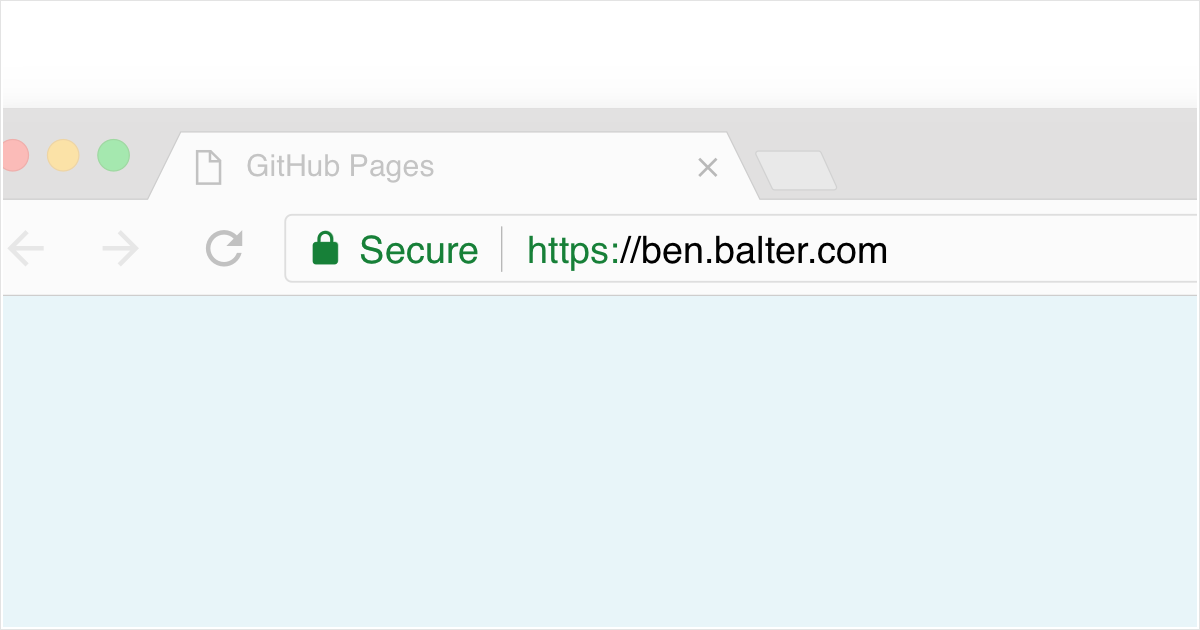Custom domains on GitHub Pages gain support for HTTPS
Encryption for all GitHub Pages sites
Today, custom domains on GitHub Pages are gaining support for HTTPS.

GitHub Pages is the best way to quickly publish beautiful websites for you and your projects. Just edit, push, and your changes are live. GitHub Pages has supported custom domains since 2009, and sites on the *.github.io domain have supported HTTPS since 2016. Today, custom domains on GitHub Pages are gaining support for HTTPS as well, meaning over a million GitHub Pages sites will be served over HTTPS.
HTTPS (most recognizable as the lock icon in your browser’s address bar) encrypts traffic between GitHub’s servers and your browser giving you confidence that the page you asked for is the page you’re reading, from the site you think it is, and that others can’t snoop on or modify its contents along the way.
We have partnered with the certificate authority Let’s Encrypt on this project. As supporters of Let’s Encrypt’s mission to make the web more secure for everyone, we’ve officially become Silver-level sponsors of the initiative.
Configuring your domain
Action may be required on your part to secure your custom domain.
If you are using CNAME or ALIAS records for your custom domain, you’re all set and your site should be accessible over HTTPS. If it is, and your site loads correctly over HTTPS, you can optionally enforce HTTPS in your repository’s settings. Users who request your site over HTTP will be upgraded to HTTPS.

If you are using A records, you must update your site’s DNS records with new IP addresses. Please see our guide to setting up your custom domain with Pages and update any A records you might have set.
Once your updated DNS records have propagated, and you’ve confirmed that your site loads correctly over HTTPS, you can optionally “Enforce HTTPS” for your domain in your repository’s settings, ensuring users who request your site over HTTP are upgraded to HTTPS.
Faster site load times
These new IP addresses don’t just allow us to serve your site over HTTPS, but also places your site behind a content delivery network (CDN), allowing us to serve your site from data centers around the world at fast speeds, and offering additional protection against DDoS attacks. While the previous IP addresses will remain available for a transition period, we recommend you migrate to the new IP addresses to gain these benefits.
HTTPS is immediately available for all GitHub Pages sites. Learn more in our documentation for the feature. Having trouble? Drop us a line.
Written by
Related posts

From pair to peer programmer: Our vision for agentic workflows in GitHub Copilot
AI agents in GitHub Copilot don’t just assist developers but actively solve problems through multi-step reasoning and execution. Here’s what that means.

GitHub Availability Report: May 2025
In May, we experienced three incidents that resulted in degraded performance across GitHub services.

GitHub Universe 2025: Here’s what’s in store at this year’s developer wonderland
Sharpen your skills, test out new tools, and connect with people who build like you.